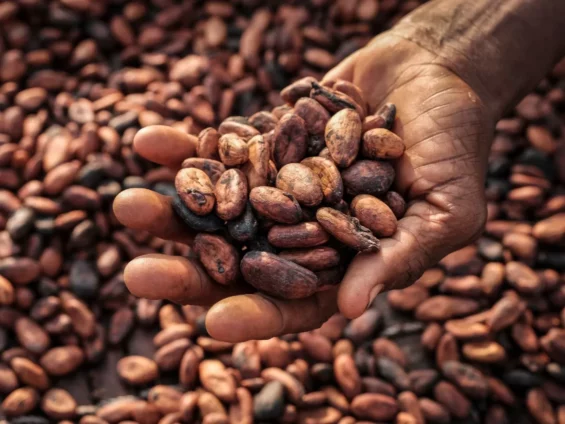Using BoG reserves for cocoa purchases a “dangerous precedent”— Banking consultant warns – Nsemkeka
Banking Consultant, Dr. Richmond Atuahene, has condemned any attempts to divert the Bank of Ghana’s (BoG) critical Cash Reserve Ratio (CRR) to fund private enterprises.
Speaking to Citi Business News on June 7, 2025, Dr. Atuahene vehemently opposed a recent proposal by COCOBOD CEO, Dr. Randy Abbey, to allocate 2 to 3 percent of these vital reserves to support local cocoa purchasing companies, warning it could destabilise Ghana’s financial system.
Dr. Randy Abbey’s suggestion aimed to inject much-needed capital into indigenous players within Ghana’s crucial cocoa sector.
As the world’s second-largest cocoa producer, generating significant foreign exchange and contributing substantially to national GDP, the financial health of local purchasing companies is a perennial concern.
However, Dr. Atuahene argues that the proposed funding mechanism fundamentally misunderstands the purpose of central bank reserves.
“These are cedis that have been mobilised and locked at the Central Bank,” Dr. Atuahene explained, underscoring the intrinsic role of the CRR. “They are meant to ensure there is always liquidity for banks to operate. If you divert these funds to purchase cocoa, you reduce the liquidity available to banks at the Central Bank.”
The CRR, currently standing at approximately 12% for universal banks in Ghana, is a cornerstone monetary policy tool.
The BoG uses it to manage the money supply, control inflation, and ensure that commercial banks maintain sufficient liquid assets to meet withdrawal demands and facilitate interbank transactions.
Tampering with such a fundamental instrument, Dr. Atuahene warned, risks unravelling the very fabric of monetary stability.
He further highlighted a critical point often overlooked: the Bank of Ghana does not remunerate commercial banks for these mandatory reserves.
“Let’s be clear,” Dr. Atuahene asserted, “When the Bank of Ghana requires banks to hold a certain percentage of deposits as reserves, it does not pay interest on those funds. So are we now suggesting that money, which banks are already not earning interest on, should be handed over for cocoa purchases? I strongly disagree.”
This effectively means that commercial banks would be compelled to forgo potential earnings from lending these funds, exacerbating their financial burden if such a policy were implemented.
Dr. Atuahene issued a stern caution that re-purposing statutory reserves for commercial ventures would establish a “dangerous precedent” and “undermine the credibility of monetary policy.”
In a nation where inflation remains a significant challenge, hovering around 23% in April 2025, any move perceived as compromising the central bank’s independence or its ability to manage liquidity could trigger severe economic instability and investor apprehension.
While acknowledging the importance of supporting local cocoa entities, Dr. Atuahene implicitly suggested that funding solutions should be sought through conventional financial channels, such as commercial loans, syndicated facilities, or government-backed bonds, rather than compromising the core functions of the nation’s monetary reserves.

